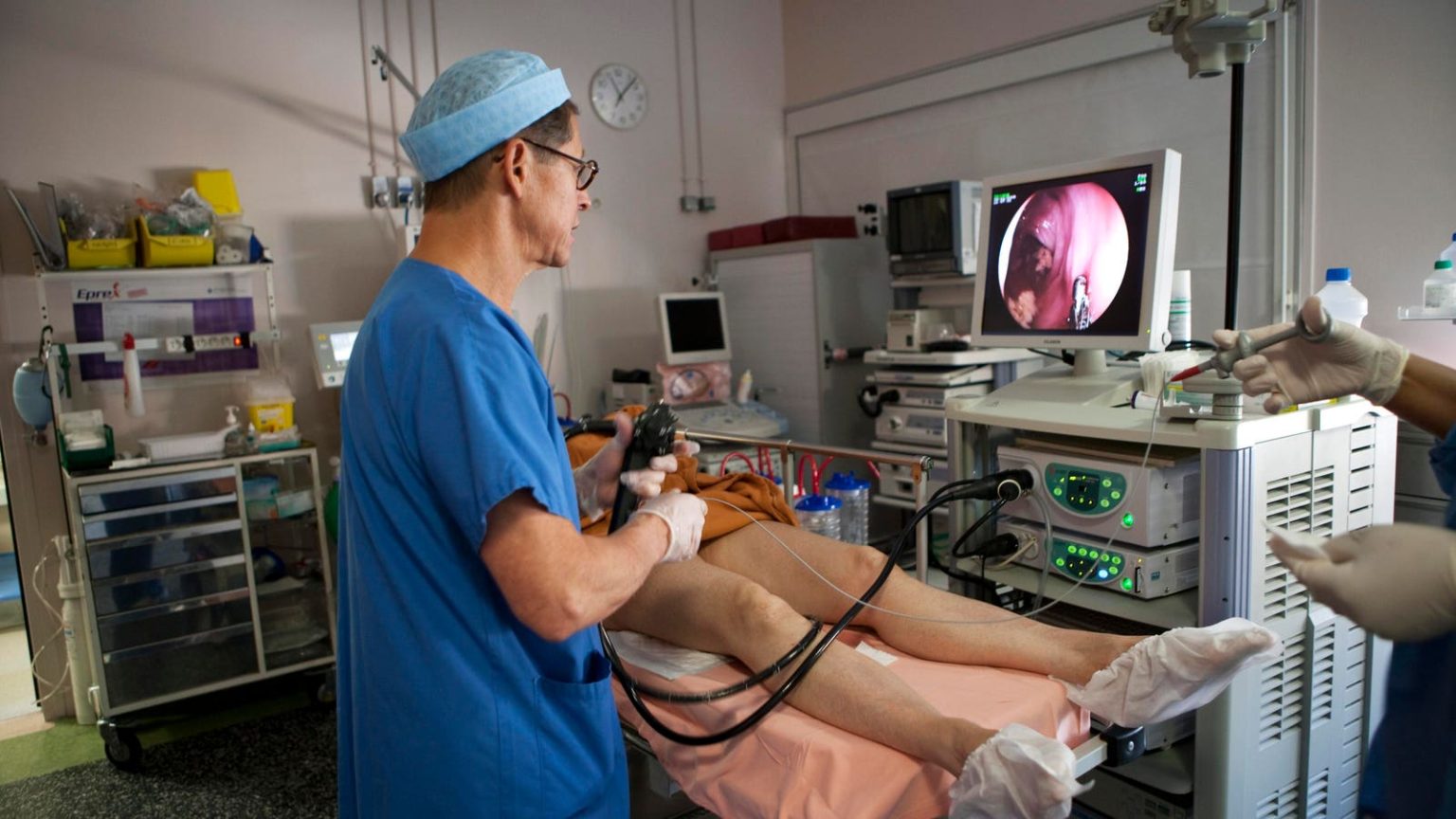A lethal cancer which can go unnoticed for years is striking down younger people at an increased rate. While cancers have steadily fallen over recent decades, scientists have been mystified by an explosion of colorectal cancer cases, also known as colon or rectal cancer, in younger adults who have traditionally been at low risk of the disease. But scientists have now found a link between the notoriously hard-to-treat cancer and processed or “junk” food such as packaged snacks, hamburgers, fries, cereals, desserts, and sugary drinks.
Colorectal cancer is a disease characterized by the uncontrolled growth of cells in the colon or rectum. It often starts with the formation of abnormal growths known as polyps in these areas, which can eventually progress into cancer.
In August 2023, researchers at the Salk Institute and the University of California, San Diego, found that high-fat diets change the composition of the gut microbiome, encouraging the growth of bacteria that boosts the production of digestive molecules called bile acid in mice. These caused inflammation, which increased the chance of colorectal cancer.
Another study, reported in journal, The BMJ in August 2022 found that, in three large prospective cohorts, high consumption of total ultra-processed foods in men corresponded with a 29% higher risk of developing colorectal cancer, as compared to men who ate the least amount. Certain subgroups of consumption of ultra-processed foods in men and women were also associated with an increased risk of colorectal cancer.
A 2018 study reported in PLOS Medicine, which examined the diets of 471,495 adults from 10 European countries using a British Nutrient Profiling System based on self-reported foods and beverages commonly eaten (controlling for factors such as weight and activity level) found that a lower-nutritional-quality diet was associated with a higher risk of colorectal, respiratory tract and stomach cancers.
These studies follow warnings that go as far back as 2015, when the World Health Organization’s International Agency for Research on Cancer announced that eating processed meat can lead to colorectal cancer in humans.
Guido Baechler, CEO of Mainz Biomed (NASDAQ: MYNZ), developer of ColoAlert— a rapid detection at-home screening test for colorectal cancer and the first DNA-based colorectal cancer screening test in Europe— says that society’s shift to diets that are high in additives and preservatives is a likely contributor to the recent surge in cases.
“Colorectal cancer ranks as the third most prevalent cancer globally and is the second most lethal. But in many instances colorectal cancer is preventable,” says Baechler. “Given the surge in numbers, particularly among younger adults who are not routinely screened, many cases are identified in advanced stages, resulting in increased mortality.”
Early detection leads to survival rates exceeding 90%, but should colorectal cancer not be detected until stage three, the five-year survival rate drops to 71%. At stage four, only 14% of patients live for another five years.
According to research, an individual’s risk of developing colorectal cancer can be influenced by a combination of factors, including genetics, environmental influences, and lifestyle choices.
In light of recent research findings, medical professionals are advising patients to avoid consuming ultra-processed foods like instant soups, candy, and processed meats and are recommending diets rich in fruits, vegetables, whole grains, and lean proteins as a way to reduce the risk of colorectal cancer.
“We’re seeing a lot more studies coming out that show eating healthy is important to reduce your risk of colorectal cancer, and that’s especially true if you have colorectal cancer in your family,” says Amanda Bode, a Registered Dietician at the Cleveland Clinic.
A 2018 European study revealed that people who ate the most food products with a higher score from the Nutrient Profiling System of the British Food Standards Agency or FSAm-NPS score (indicating lower nutritional quality) showed a higher risk of colorectal cancer— which suggests that front-of-pack nutrition labels, and other public health nutritional measures might be effective in helping to reduce colorectal cancer rates.
The increasing incidence of colorectal cancer among younger individuals and infrequent early screenings— often due to a fear of undergoing colonoscopy— underscores the critical need for accessible screening methods and public education.
At-home stool DNA tests, such as ColoAlert which features patent-pending mRNA biomarkers, offer a non-invasive alternative to colonoscopy, and are approved by the U.S. Preventive Services Task Force for use once every three years, beginning at age 45.
Many large companies recognize the value of prevention and early detection, and are providing healthy meals to staff as well as early screening in connection with employee insurance plans. A recent collaboration between Mainz Biomed and Zöller-Kipper GmbH underscores the value of this approach in combating the rise of colorectal cancer.
Data from JAMA Surgery shows that colorectal cancer is expected to rise by 90% in people ages 20 to 34 by the year 2030— but colorectal cancer is distinctive in that it is one of the most preventable cancers, with survival rates exceeding 90% when detected early.
A 2022 review, examining dietary intake as a risk factor for Early-Onset Colorectal Adenoma and Carcinoma (EOCRC) found that Individuals who regularly consumed substantial quantities of deep-fried foods, processed items, maintained a high-fat diet, drank excessive sugary beverages, and indulged in desserts, all while having low intake of folate and fiber, were found to have a notably higher risk of early-onset colorectal cancer (EOCRC). On the other hand, a protective effect against EOCRC was identified in those who had a diet rich in fruits and vegetables, consumed ample micronutrients, and adhered to a vegetarian dietary pattern.
“The truth is in the science,” says Baechler.
“While diagnostic delays can be avoided through routine screenings, diet is a modifiable risk factor, that can help to save lives.”
Read the full article here





